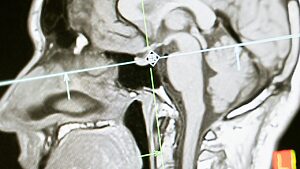Trazodone, a commonly prescribed antidepressant, is known for its effectiveness in managing depression and sleep disorders. However, like any medication, it’s important to be aware of potential long-term side effects. In this blog, we will explore the potential long-term side effects of trazodone and provide essential information for individuals considering or currently using this medication.
Sexual Dysfunction
One of the potential long-term side effects associated with trazodone usage is sexual dysfunction. This can manifest as decreased libido, erectile dysfunction, or difficulty achieving orgasm. These effects can significantly impact the quality of life for individuals on long-term trazodone treatment. If you experience any sexual side effects while taking trazodone, it’s important to discuss them with your healthcare provider, as alternative treatment options or adjustments may be available.
Cardiac Effects
In rare cases, trazodone has been linked to cardiac side effects. Prolonged use of trazodone may cause abnormal heart rhythms, including QT prolongation, which can increase the risk of a life-threatening condition called Torsades de Pointes. It is crucial to inform your healthcare provider if you have a history of heart disease or if you experience any symptoms such as palpitations or fainting while taking trazodone.
Weight Changes
Trazodone use has been associated with weight fluctuations in some individuals. While weight gain is more commonly reported, weight loss can also occur. These changes may be attributed to factors such as appetite alterations, metabolic effects, or fluid retention. If you notice significant and unexplained weight changes while on trazodone, it’s important to discuss them with your doctor to determine the appropriate course of action.
Cognitive Impairment
Long-term use of trazodone has been associated with potential cognitive side effects. Some individuals may experience memory problems, difficulty concentrating, or mental confusion. It is important to report any cognitive changes to your healthcare provider, as they can assess whether these effects are related to trazodone or may have other underlying causes.
Withdrawal Symptoms
When discontinuing trazodone after long-term use, some individuals may experience withdrawal symptoms. These can include insomnia, anxiety, dizziness, and mood swings. It is crucial to work closely with your healthcare provider when tapering off trazodone to minimize the risk of withdrawal symptoms. They can provide a gradual dosage reduction plan and offer appropriate support during this transition.
While trazodone can be an effective medication for managing depression and sleep disorders, it’s important to understand the potential long-term side effects. By staying informed and maintaining open communication with your healthcare provider, you can make informed decisions about your treatment and address any concerns regarding trazodone’s long-term use. Always consult with your doctor for personalized advice and support throughout your treatment journey.













